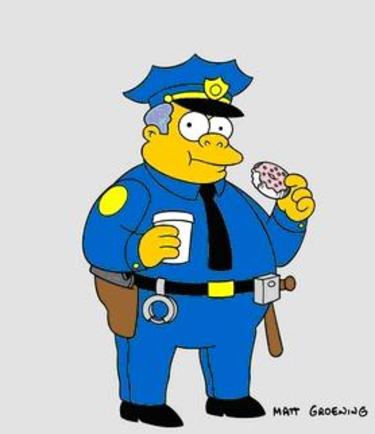A retired policeman once told the legendary hypnotist, Milton Erickson...

"I have emphysema, high blood pressure, and, as you can see, I am grossly overweight. I drink too much. I eat too much. I want a job but my emphysema and blood pressure prevent that. I would like to cut down on my smoking. I'd like to get rid of it. I'd like to quit drinking about a fifth of whiskey a day and I'd like to eat sensibly."
Erickson ask him, "Are you married?" The policeman replied, "No, I'm a bachelor. I do my own cooking, but there's a restaurant right around the corner where I often visit". Erickson said, "So, there's a handy restaurant around the corner where you can dine. Where do you buy your cigarettes?"
He said he bought two cartons at a time.
Erickson pointed out, "In other words, you buy cigarettes not for today, but for the future. Now since you do most of
your own cooking, where do you shop?"

The policeman said, "Fortunately, there's a little grocery store right around the corner. That's where I get my
groceries and cigarettes."
"Where do you get your liquor?"
The policeman replied there was one right next door to the grocery.
Erickson summarized the situation.
"So you have a handy restaurant, grocery and liquor store near your house. You say you want to jog, but you can't. However, you CAN walk".
"All right, buy your cigarettes one pack at a time. Walk across town to buy your pack. That will get you in shape. As for groceries, don't go to the one by your place. Find another one at least a mile away. And buy JUST enough for one meal. That's three nice walks a day.

"As for the liquor, you can drink all you want to. Take your first drink at a bar at least a mile away. If you want a second drink, find another bar at least a mile away. If you want a third, find another bar a mile away."
The policeman looked at Milton Erickson angrily. He cursed at him and left.
A month later, a new patient came by to see Erickson and told him this...
"A policeman referred me to you and said you were the only psychologist in town who knew what he was doing."
This story is worth reading a few times.
There are many levels to it.
I'll show you a couple, and then I'd like you to tell me other levels and interpretations you've found.
Here's one...
Erickson did not DEPRIVE his subject of his wants. He didn't say you can't do this, or you must stop that.
That's what well-meaning friends and family do.
Notice it never works.
Instead, Erickson tells the policeman what he CAN do. He can drink all he want, smokes all he wants, eats all he wants. But he must walk. Now, here's a second and much deeper level to this story. You might be thinking. Well, if I heard that I'd disobey and just keep on smoking, drinking and over-eating.
Right?
Who in the right mind would religiously follow these absurd instructions?
Here's where Erickson is brilliant.
What is a policeman trained to do from the moment he joins the academy? He is trained to listen and obey!
Erickson knew this.
He has a long history of carrying out orders.
So Erickson gave this policeman instructions, expecting him to follow it.
And this lesson is extremely important.
What Erickson did was meet the subject in HIS frame of reference.
When you begin the process of hypnotizing someone...And you're starting to build trust and rapport, it's highly important you pay attention to who your subject is.
Every little detail.
A detail like being a policeman and being susceptible to following orders...That's huge. Pay attention to the NEXT person you come in contact with.
As you find out more about who they are, start brainstorming in your head (very quickly) how you can use what you know about them...
Below is a scene from Sherlock Holmes Watch and learn.
conversation skills, genuinely interested and little of feedback, he even summarizes what the patient told him?
ReplyDeleteyes, that is correct. So the patient got the instruction unconsciously.
Deletethe patient being a policeman, as you said he knows where the guy is coming from, plus he seeks to understand the patient then he was understood. how about the other levels?
Deleteother levels one is he Milton used affirmative language to naturally persuade the policeman..
Deleteby affirmative language one example is that Milton did not communicate to the patient that his habits are bad right? instead he focus on what they can do about it.
ReplyDeletethe instruction, aside from knowing that the patient will obey no matter what, Milton did not directly told him to stop the bad habits, he just added the walking exercise, but the patient then realize that its too tiring to walk for miles buying a pack of cigarette and to drink alcohol, as he gets tired of walking eventually the patient just decided to stop the bad habits. Milton incorporated the bad habit to a new habit that the patient is not willing to sustain.